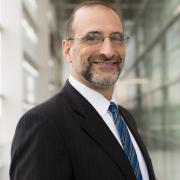A WebMD/Sanford Health survey found that parents of teens find it more difficult to talk about weight with their child than talking about sex, drugs, alcohol or smoking.
For adults, talking with children about their weight can be made difficult by adults’ own issues with weight and conflicting messages about weight from the media or society as a whole.
Unfortunately, the majority of our children’s healthcare providers don’t feel adequately prepared to talk with children about weight, either. Studies show that over 75% of physicians feel that they have not received adequate training to be able to counsel patients on changing diet or increasing physical activity levels.
Currently 1 in 3 children and adolescents (ages 2-19) are struggling with overweight or obesity, putting them at risk for a number of serious health problems such as type 2 diabetes and asthma.
Physicians have the capacity to help prevent and reduce the prevalence childhood obesity, which has tripled in the last 30 years, but need the proper training in order to do so.
Last month the Alliance for a Healthier Generation, American College of Sports Medicine, and Bipartisan Policy Center, released a white paper pointing to this skills and knowledge gap among medical professionals.
One of the goals for the white paper is to increase and broaden awareness of the need for changes in medical education. Right now, less than 30% of medical schools meet the minimum number of hours of education in nutrition and exercise science recommended by the National Academy of Sciences.
At the Alliance for a Healthier Generation, we are working to provide tools and resources to both parents and physicians to have these difficult but critical conversations with children.
For parents, we’ve written this Weigh In Guide in partnership with the STOP Obesity Alliance, which offers best practices on addressing issues of childhood obesity. For healthcare providers, we are working directly with national insurers and large employer groups on their health benefit plans to ensure preventive services are available for the assessment and treatment of childhood obesity; our Healthier Generation Benefit now offers these services to more than 2.8 million children nationwide.
It’s time to further invest in resources and education for parents and physicians to address childhood obesity, because the return on that investment will be a happier and healthier generation.
For more information on the Alliance for a Healthier Generation, please visit healthiergeneration.org.


The views and opinions expressed in this post are those of the author(s) and do not necessarily reflect those of MomsRising.org.
MomsRising.org strongly encourages our readers to post comments in response to blog posts. We value diversity of opinions and perspectives. Our goals for this space are to be educational, thought-provoking, and respectful. So we actively moderate comments and we reserve the right to edit or remove comments that undermine these goals. Thanks!